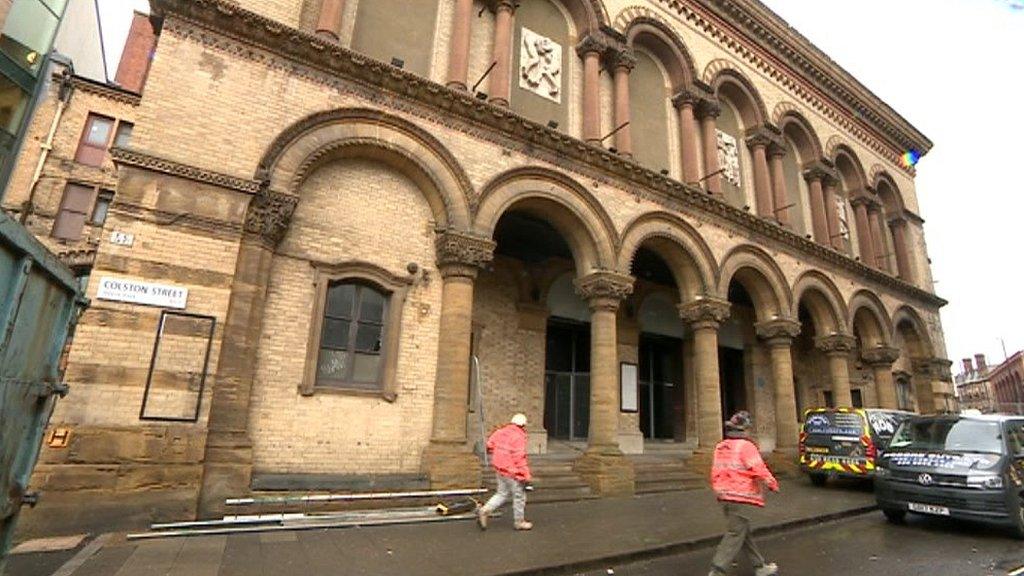Bristol Beacon: New pictures show £107m refit progress
- Published
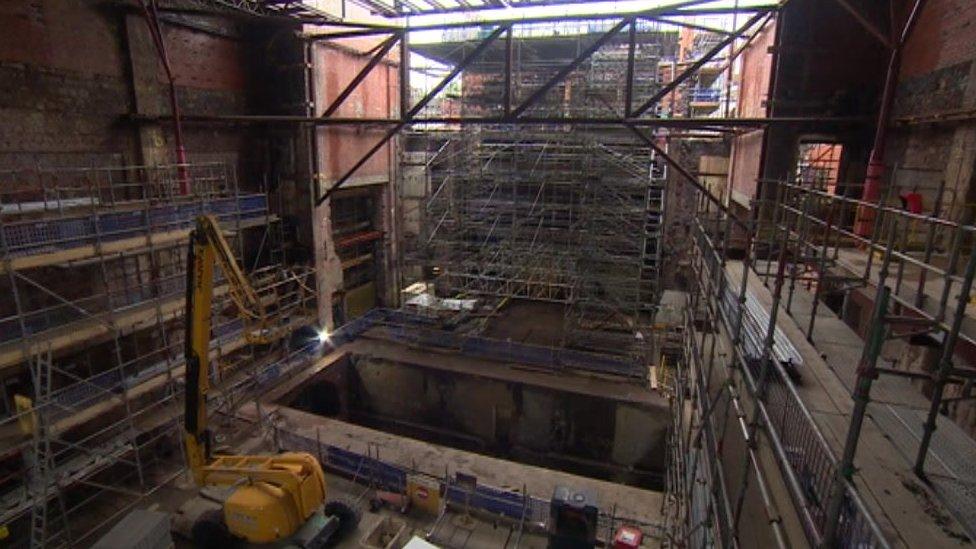
The price of the refurbishment has doubled since the venue closed after other problems were found in it
New pictures from inside the Bristol Beacon show the progress being made as it undergoes a £107m refit.
City mayor Marvin Rees toured the complex, closed since 2018, and insisted the price tag would be worth it when it reopens in late 2023.
The price has doubled and its opening has been frequently delayed.
Refurbishment work found asbestos in its roof - which has now been fully replaced - and columns that turned out to be hollow.
Bristol City Council owns the building and it is run by the Bristol Music Trust.
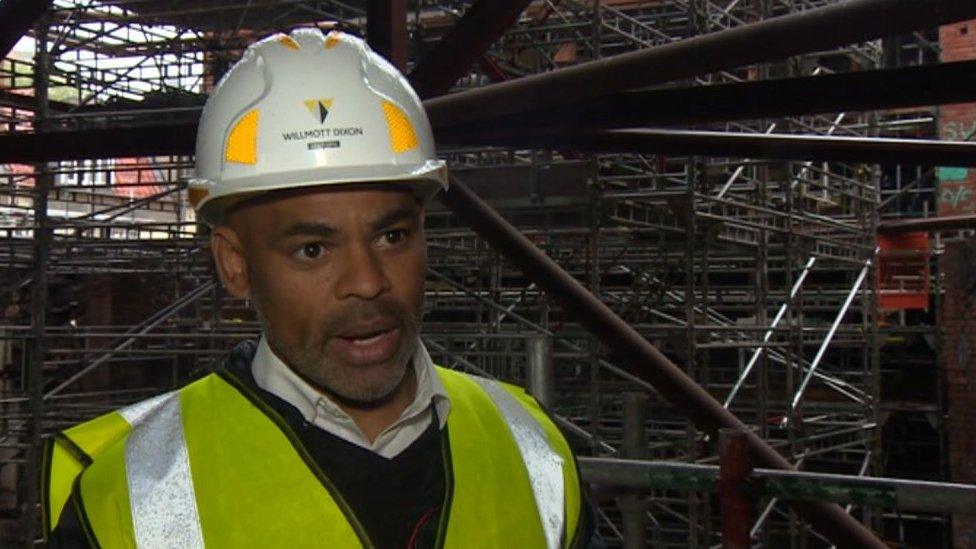
Marvin Rees said paying for the refurbishment was the only viable plan
Mr Rees said the "only other course of action" other than paying for the refurbishment would be to "end up with an empty building in the middle of the city.
"I don't think that's a viable course of action for Bristol to have a venue just sat here empty. Remember, it couldn't stay open because it was unsafe."
Richard David, of Willmott Dixon, which is undertaking the works, said: "You can't get into the structure and find out where the problems are until the venue's closed.
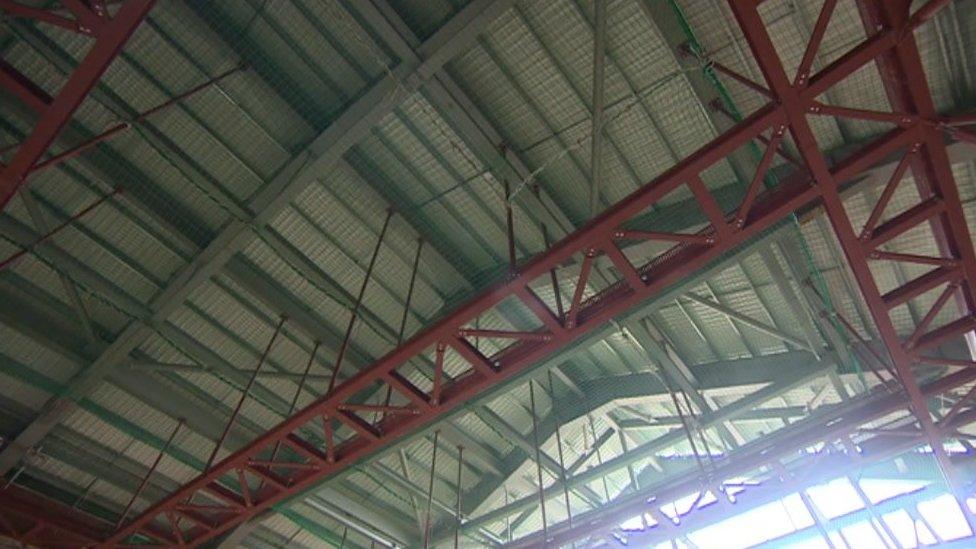
The Bristol Beacon's roof has been replaced after the original one was found to contain asbestos
"When the venue closed we peeled back the layers of the onion, if you like, and that's what started to reveal some of the horror stories that were hidden in the existing fabric of the building.
"A huge amount of work has had to go back into restoring the walls to get the structure back into a position that's safe for 2,000 people to be in here dancing and swaying to music."
The Beatles, David Bowie, Elton John, Ella Fitzgerald and Louis Armstrong all performed at the then Colston Hall.
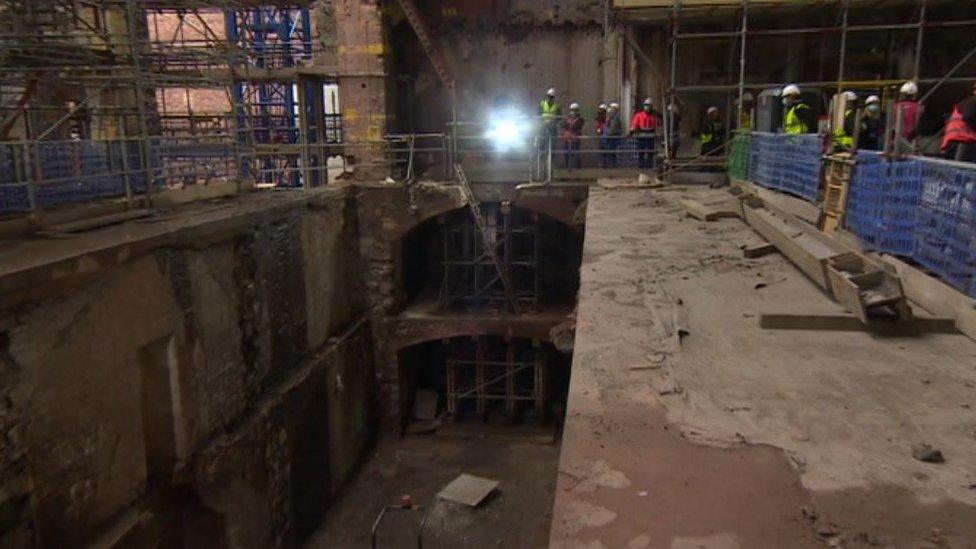
The Beatles, David Bowie, Elton John, Ella Fitzgerald and Louis Armstrong all played at the then Colston Hall
It was renamed in September 2020, dropping any association with the slave merchant Edward Colston.
Louise Mitchell, Bristol Music Trust, said the building was found to be "significantly more fragile than we'd allowed for".
"You can't rush it, we need to do it properly and way, way back the trustees took the decision that we were going to do this properly and it's been hard, it's been a long, complex road but it'll be worth it in 2023. I'm pretty sure we'll be there."

Follow BBC West on Facebook, external, Twitter, external and Instagram, external. Send your story ideas to: bristol@bbc.co.uk , external
Related topics
- Published9 March 2021
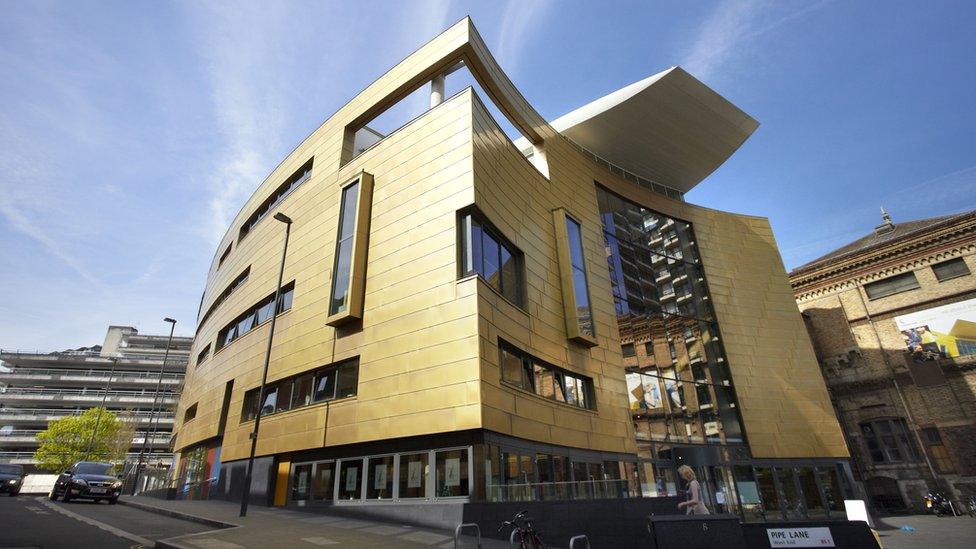
- Published9 July 2020
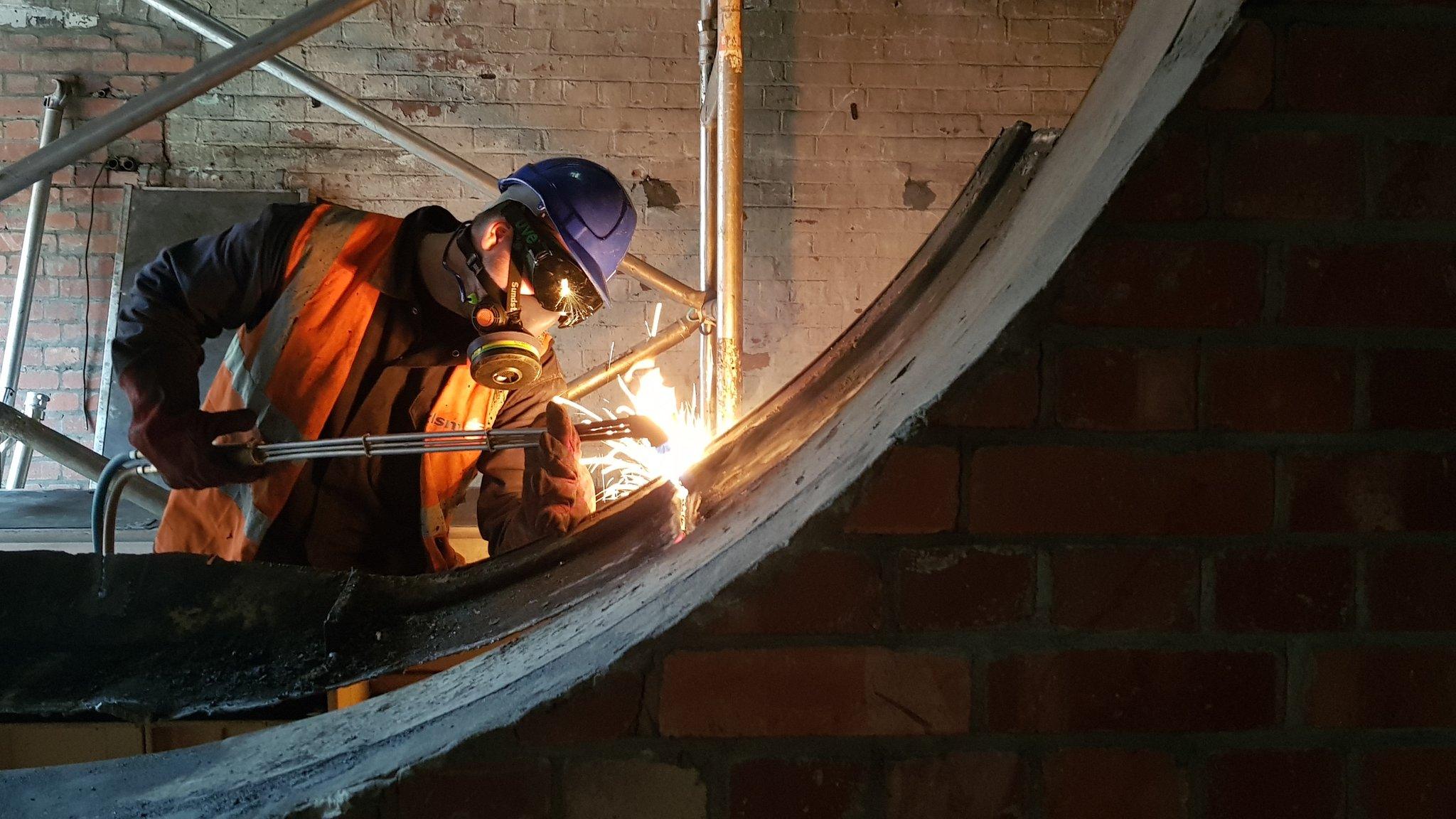
- Published8 February 2019
